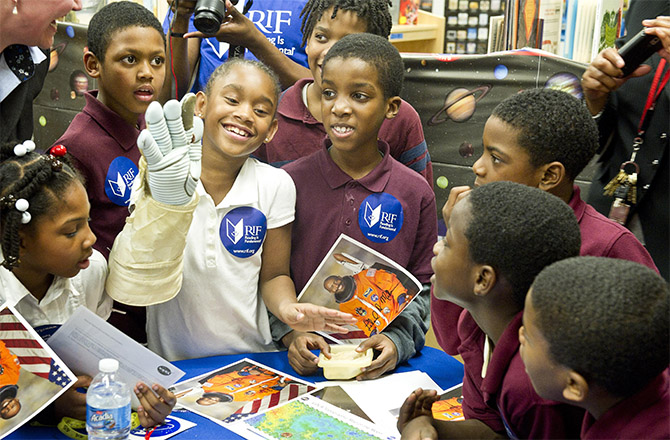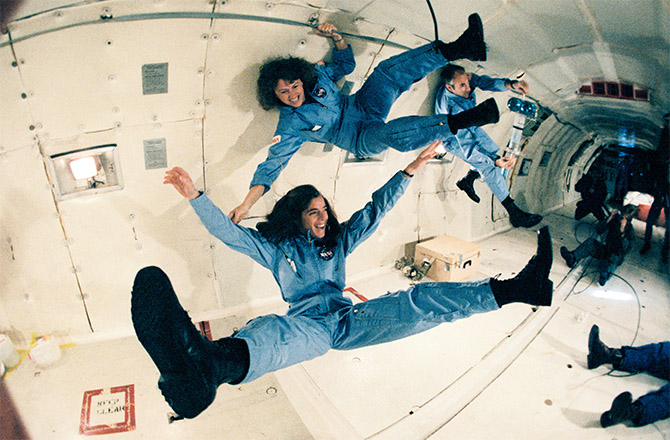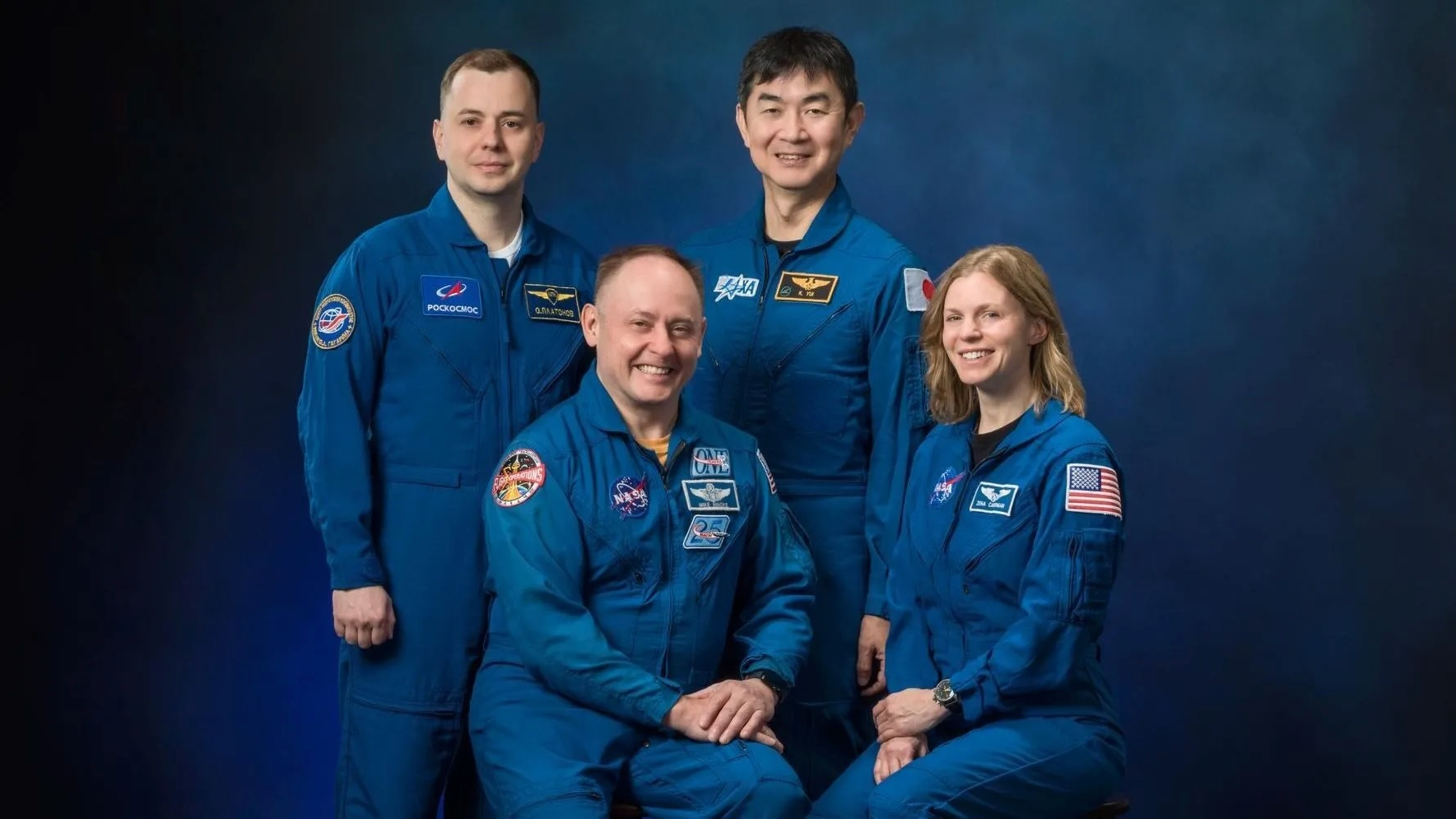
'Astronaut Instruction Manual' Introduces Kids to Space

Mike Mongo has a custom-made set of upside-down glasses. He stumbled on the idea a few years ago by accident, when some new glasses were pinching him, he turned them upside down to stop the bridge of his nose from hurting — and then he did a half-hour video Skype interview before remembering to turn them back around.
After he told his bemused wife about the incident, Mongo had an idea — why not wear upside-down glasses in elementary and high school classrooms when he guest-speaks about space? He found it gets the students' attention instantly.
PHOTOS: How a NASA Astronaut is Paving the Way to Mars
"I tell them grownups, their attention is constantly distracted by smartphones and newspapers, and it's hard to get grownup's attention and that's why my glasses are upside down," he said. "The students look at each other and I call tell they know exactly what I'm talking about."
While Mongo can"t wear his clever glasses in every classroom in the world, he's expanding his reach with a new book called The Astronaut Instruction Manual for Preteens. Set for release on Tuesday (Oct. 13), it encourages students to think creatively when deciding to be astronauts.
Referring to his young readers as "humannaires" (after the Roman legionnaires of old), Mongo — whose day job involves computers and web design — encourages students to learn how to focus, how to hold their breath, and (perhaps in a foreshadowing of telling people not to forget their towel) to remember "everything always works out" in moments of stress.
PHOTOS: Where NASA Simulates Space to Train Astronauts
Breaking space news, the latest updates on rocket launches, skywatching events and more!
It's a message that Mongo already brings to classrooms in the United States and in other countries, including Jamaica, Haiti and even Cuba (with the assistance of former Congressman Joe Garcia.) He tells students they could be the first astronaut from Havana, or Haiti, and their eyes light up with possibilities, he said.
While not every kid will actually be an astronaut, he encourages them to think creatively about their careers. What they want to do. And then he tells them that most grownups have several careers, so they will have the chance to do many things when they get older. Mongo himself has spoken at the 100 Year Starship Symposium and is the chief brand and culture officer for Icarus Interstellar, both projects looking to bring people beyond the solar system in a few generations.
He adopts the term "space is for everybody" — which he said he first heard spoken by teacher in space Christa McAuliffe, who died in the Challenger space shuttle explosion of 1986. To him, the phrase means that it should be open to everyone irrespective of skin color, orientation, nation or other factors. He cites the example of Sally Ride, the first U.S. female astronaut in space, who kept quiet about her same-sex marriage up to her death.
PHOTOS: Inside the First 100 Days of a Year in Space
Equality is advice that Mongo, husband to wife Leonie, takes to heart in his own life. He was president of a Key West community center for LGBT, and attended the first same-sex marriage ceremony in the area earlier this year. He cites examples of minority astronauts to the classes he speaks in, trying to contrast to the example of the all-white, male astronauts who flew to the moon in the Apollo program of the 1960s and 1970s.
"One of the things we need to do to prioritize as a nation is to right these wrongs, and space has the opportunity to do that, and when I say space is for everyone, kids get that," Mongo says. "By pursuing space, we solve for every challenge on Earth today. Energy, health, inclusion, sustainability, even prosperity. This is my pitch."
This article was provided by Discovery News.

Elizabeth Howell (she/her), Ph.D., was a staff writer in the spaceflight channel between 2022 and 2024 specializing in Canadian space news. She was contributing writer for Space.com for 10 years from 2012 to 2024. Elizabeth's reporting includes multiple exclusives with the White House, leading world coverage about a lost-and-found space tomato on the International Space Station, witnessing five human spaceflight launches on two continents, flying parabolic, working inside a spacesuit, and participating in a simulated Mars mission. Her latest book, "Why Am I Taller?" (ECW Press, 2022) is co-written with astronaut Dave Williams.

